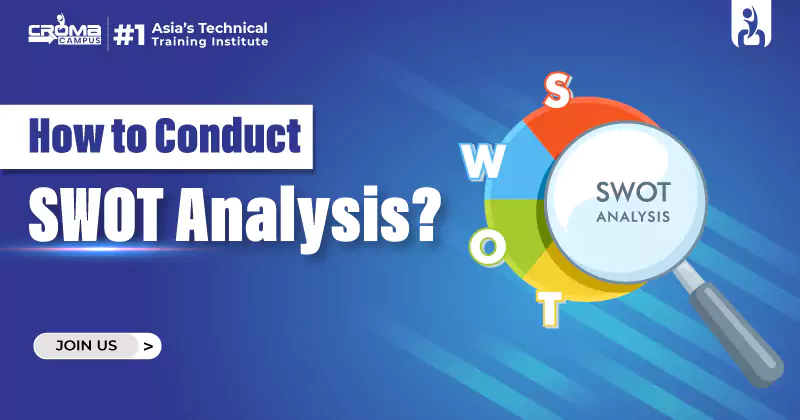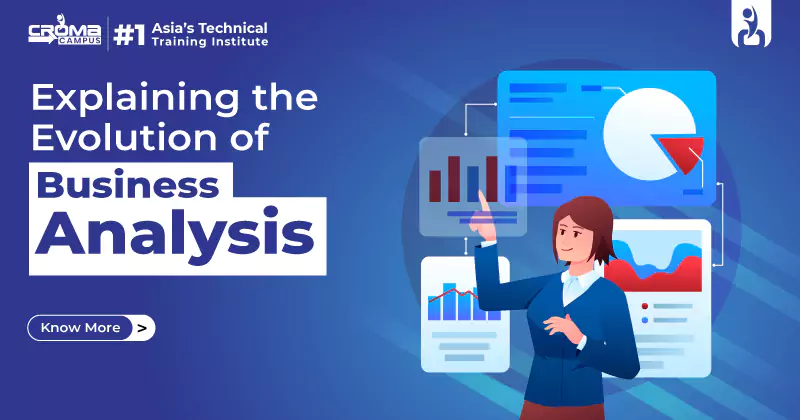Business Analyst Course Syllabus – What Is All Covered 2026
4.8 out of 5 based on 7458 votesLast updated on 20th Mar 2024 13.9K Views
- Bookmark

A Business Analyst course typically covers topics like requirements analysis, data modeling, stakeholder management, and project documentation techniques.

The Business Analyst course syllabus aims to teach students about business analytics, management principles, and essential analytical skills necessary for making informed business decisions. It covers various subjects including organizational behavior, data management, data visualization, and financial management, providing students with a strong foundation in business, economics, and data handling.
Business analytics involves analyzing data to uncover patterns and insights, integrating elements from three domains: business, data analytics, and programming. In this post, we will learn about Business Analyst class content that will help you to understand what is taught during training and an idea of business analyst certification cost.
Common Subjects for Business Analyst Course Syllabus
Business analytics encompasses various subjects crucial for making informed business decisions. These include data analysis, statistics, and business intelligence to uncover insights from data.
Data visualization helps in presenting findings effectively, while predictive modeling and machine learning aid in forecasting future trends. Financial analysis focuses on monetary aspects, while marketing analytics delves into consumer behavior and trends.
Operations research optimizes processes, and decision science aids in strategic decision-making. Through a blend of these subjects, business analytics equips professionals with the skills needed to interpret data, derive valuable insights, and drive business growth.
Subjects involved in business analytics:
- Data analysis
- Statistics
- Business intelligence
- Data visualization
- Predictive modeling
- Machine learning
By mastering these subjects, individuals can gain a competitive edge in the ever-evolving business landscape, enabling them to make data-driven decisions that lead to organizational success.
Note: Croma Campus is one of the leading EdTech companies for providing HR Payroll Course Online. You can check the details about the course, fees, and duration.
Different Types of Business Analytics:
- Descriptive Analytics: Involves analyzing past data to understand what happened in the business, such as sales trends or customer behavior.
- Predictive Analytics: Utilizes historical data and statistical algorithms to forecast future outcomes, enabling businesses to anticipate trends and make proactive decisions.
- Prescriptive Analytics: Goes beyond predicting future outcomes by suggesting the best course of action to achieve desired results, often using optimization and simulation techniques.
- Diagnostic Analytics: Focuses on identifying the reasons behind past events or trends, helping businesses understand why certain outcomes occurred and enabling them to learn from past experiences.
Note: An HR Generalist handles recruitment, payroll, compliance, and employee relations. Enrolling in an HR Generalist Course Online enhances skills in HR operations, policies, and management.
Business Analyst Certification Cost
The Business Analyst Certification Cost varies depending on several factors such as the certification provider, the level of certification, and any additional study materials or training courses required. On average, certification exams can range from $150* to $500*.
Additionally, preparatory courses or study materials may incur extra costs, typically ranging from a few hundred to a few thousand dollars. It's important to research different certification options and associated costs to find the best fit for your budget and career goals.
Note: HR Analytics helps businesses make data-driven decisions. Enroll in an HR Analytics Online Course to learn workforce analytics, performance metrics, and predictive insights for strategic HR management.
You May Also Read This:
Business Analyst Interview Questions And Answers
How To Become Business Analyst
Top Certification Courses For Business Analysts
Business Analyst Course Content/Syllabus
The content of a Business Analyst Certification Course typically covers a range of topics essential for the role. Here's a general overview of the Business Analyst Course Syllabus:
-
Introduction to Business Analysis:
- Understanding the role of a business analyst
- Importance of business analysis in organizations
- Key skills and competencies required
-
Business Analysis Planning and Monitoring:
- Defining project scope and objectives
- Stakeholder identification and analysis
- Creating a business analysis plan
-
Requirements Elicitation and Management:
- Techniques for gathering requirements (interviews, workshops, etc.)
- Documenting and managing requirements
- Prioritizing requirements and managing changes
-
Enterprise Analysis:
- Analyzing business needs and opportunities
- Identifying and evaluating strategic options
- Developing business cases and feasibility studies
-
Requirements Analysis and Documentation:
- Analyzing and modeling requirements (use cases, process models, etc.)
- Documenting requirements using appropriate tools and techniques
- Validating and verifying requirements with stakeholders
-
Solution Assessment and Validation:
- Assessing proposed solutions against business needs
- Conducting solution validation activities
- Ensuring solutions meet quality standards and stakeholder expectations
-
Business Process Improvement:
- Analyzing and improving business processes
- Identifying areas for optimization and automation
- Implementing process changes and measuring outcomes
-
Communication and Collaboration:
- Effective communication strategies for business analysts
- Collaborating with stakeholders and project teams
- Presenting findings and recommendations effectively
-
Tools and Techniques:
- Introduction to business analysis tools (e.g., Microsoft Visio, JIRA)
- Techniques for data analysis, modeling, and visualization
- Best practices for selecting and utilizing tools in different scenarios
-
Case Studies and Practical Exercises:
- Real-world case studies and scenarios
- Hands-on exercises and simulations to apply learned concepts
- Group projects to practice collaboration and problem-solving skills
-
Exam Preparation (if applicable):
- Review of key concepts and knowledge areas
- Practice exams and quizzes
- Tips and strategies for exam success
Overall, a comprehensive business analyst course syllabus equips participants with the knowledge, skills, and practical experience needed to excel in the role of a business analyst and contribute effectively to organizational success.
Tips: Learn key strategies for effective HR Management. Enroll in an HR Management Course Online to master recruitment, compliance, and employee engagement for business success.
Studying Business Analyst skills can vary in difficulty depending on your background, experience, and the complexity of the concepts you're learning. Here are some factors to consider:
- Previous Experience: If you have a background in business, finance, or data analysis, you may find it easier to grasp business analyst concepts. However, even if you're new to the field, many courses are designed for beginners and offer step-by-step guidance.
- Complexity of Concepts: Some business analyst skills, such as data analysis techniques or process modeling, can be complex and may require time and practice to master. However, many courses break down these concepts into digestible chunks and provide hands-on exercises to reinforce learning.
- Personal Learning Style: Your preferred learning style can also impact how easy or challenging it is to study business analyst skills. Some people may thrive in structured, classroom-based settings, while others may prefer self-paced online courses or hands-on learning experiences.
- Persistence and Practice: Like any new skill, becoming proficient in business analysis requires persistence and practice. It's important to dedicate time to studying, completing exercises, and applying what you've learned in real-world scenarios.
Overall, while studying business analyst skills may pose challenges at times, with dedication, practice, and the right resources, it is achievable for most individuals. If you are staying in Delhi/NCR and looking for Business Analysis Training in Delhi, Do visit Croma Campus and get free consultation and the best course as per your requirements. We do provide 100% job assistance as well.
Other Related Courses:
How does Croma Campus help?
Croma Campus offers expert-led Business Analyst (BA) certification training with a structured curriculum, hands-on projects, and interactive sessions. Learners receive guidance from experienced instructors, preparing them for recognized certifications like CBAP or CCBA.
With flexible learning options and career support services, Croma Campus ensures individuals acquire the essential BA skills and excel in their careers. Our business analyst course content is comprehensive and can be customized if needed. We wish you luck!
Note: An HR Analyst plays a crucial role in workforce planning, data analysis, and decision-making. Earning an HR Analyst Certification enhances skills in analytics, reporting, and compliance.
Subscribe For Free Demo
Free Demo for Corporate & Online Trainings.










.jpg)














.webp)
.webp)

.png)















